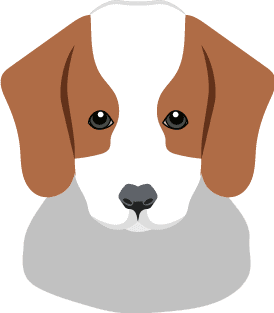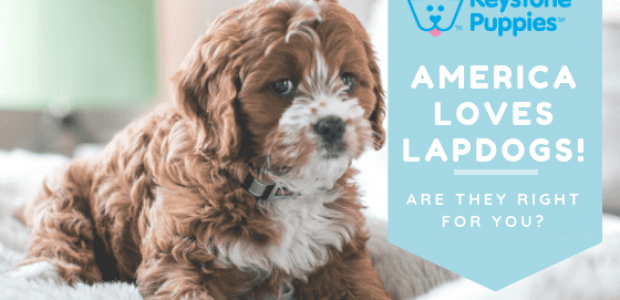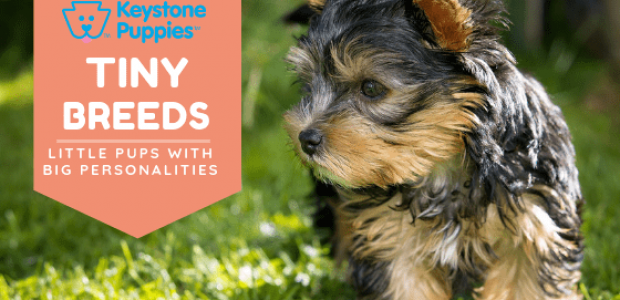Hunters and Hounds
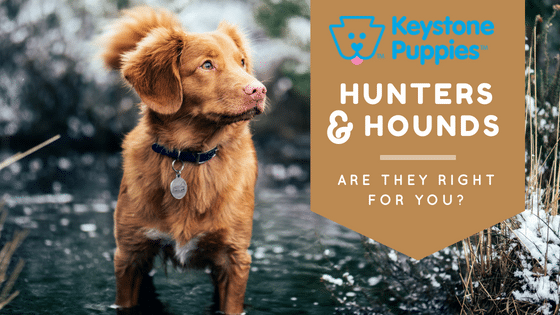
Dogs have been helping people hunt for thousands of years. Ancient cave drawings show men and dogs hunting side by side as far back as 8,000 BC. Over the millennia, dogs have been bred to hunt using specific methods that suit different types of hunters. Because so many hunting breeds are intelligent, sociable, and loyal, they also make great pets for owners willing to give them lots of exercise.
Hunting Hounds Breeds
While the early history of hunting dogs is not well-documented, it seems that hounds were probably one of the first types of hunting dogs. These pups were bred to develop an excellent sense of smell to track prey.

There are many hound breeds. Some breeds, like the Basset Hound, are laid-back and don’t crave as much physical exertion. Others, like the Beagle and the Redbone Coonhound Mix, were bred to track game for many miles. These energetic breeds want lots of daily exercise.
All hounds tend to engage in loud baying or howling that neighbors can easily hear. It’s best to place hounds with owners that can allow them to indulge their natural instincts without annoying the neighbors.
While almost all canines have excellent smell, hounds have an even more refined sense of smell. That means that they need to sniff and that they will find many scents irresistible. They’re more likely than some breeds to sniff out snacks, run off with smelly socks (and underwear), and wander off in search of an interesting smell.
Hunting Pointer and Setter Breeds
Pointers and setters were bred to stand still, or “freeze” when detecting game. Pointers use their nose and paw to point, while setters crouch, or “set” when game is detected. While famous for finding game, these breeds can also be trained to flush out their quarry and retrieve dead prey. Pointers and setters tend to be good-natured, friendly dogs that do well with children. Like most hunting breeds, they need lots of outdoor exercise to remain content.
German Shorthair Pointers, Irish Setters, Vizlas, and Weimaraners are all classified as pointer and setter breeds, but there are differences among them.

Most notably, Weimaraners have a reputation for being headstrong. They’re highly intelligent and need a strong leader to keep them calm and centered. With focused training and consistent discipline, they can be a good hunter and a wonderful family pet.
All pointer and setter breeds like to nip, chew, and play-bite (a soft, painless bite that doesn’t break skin.) These breeds need a regular supply of chew toys. You may need to teach them which items are okay to chew, and which are off limits.
Finally, all pointers and setters need lots of exercise and outdoor time, in all types of weather. If you plan to use your dog for hunting, you need to give them plenty of time to acclimate to outdoor temperatures.
Hunting Flushing Breeds
Flushing dogs “flush out” game. Many birds, such as pheasants, hide when in danger. A trained flushing breed will go after the bird to get them to take flight. A trained flushing breed will then watch the bird fly, mark where the bird has fallen, and retrieve upon command
English Springer Spaniels and Cocker Spaniels are some of the best-known flushing breeds.
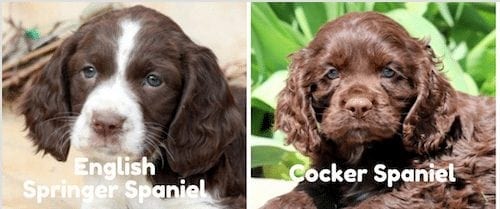
English Springer and Cocker Spaniels are closely related breeds. They are both loyal and affectionate family pets, but like many hunting breeds, they need daily outdoor exercise in all kinds of weather.
Spaniels like to nip and play bite, but they are usually very gentle around children. These pups like chasing after prey, so they must be well-trained before you can let them off the leash in places that have squirrels and rabbits. Spaniels are also chewers and like to explore with their mouth. Make sure they have lots of chew toys and take special care to train them to keep away from clothing, human food, and kids’ toys.
If you plan to train your spaniel to hunt, you will need to acclimate him to the outdoor weather. Get tips on caring for trained hunting breed here.
Hunting Retriever Breeds
Retrievers were originally bred to help with waterfowl hunting, and some have been trained to help fishing crews. Well-trained retrievers will watch and wait until they are commanded to retrieve fish or fowl from the water. Many retrievers have heavy coats well-suited to swimming in icy cold waters.
Retriever hunting breeds include Chesapeake Bay Retrievers, Golden Retrievers, Standard Poodles, Portuguese Water Dogs, and Labrador Retrievers.

Retrievers have a well-earned reputation as a friendly, loyal breed. They are relatively easy to train and make excellent family pets.

However, like all hunting breeds, retrievers need lots of daily outdoor exercise in all kinds of weather. They are exceptionally playful, and like to spend time wrestling and rolling with other dogs. Retrievers like to nip and play bite. Make sure you provide lots of toys that satisfy their need to chew. You will need to train them to keep away from clothing, foods, and kids’ toys.
If you plan to train your retriever to hunt, you will need to acclimate him to the outdoor weather. Get tips on caring for trained hunting breed here.
Hunting Breeds From History
Many of today’s companion dogs started out as hunting dogs. Did you know that Akitas started out helping Japanese hunters flushing out deer, wild boar, and even bear?
Shibu Inus are another type of Japanese hunter. History records Shibu Inus hunting as far back as the third century, although today they are considered companion dogs.

Alaskan Malamutes have a history of helping Native American tribes hunt polar bears, and were also trained to alert hunters when they spotted a seal’s blow hole in the water.
The Cane Corso can be traced back to Roman times. This descendent of the Mastiff was often used in Italy as a guard dog and a farm dog, but their power and agility also made them a favorite hunting dog for big game such as deer, wild boar, and even bears.
While Norwegian Elkhounds have a reputation as a family-friendly watchdog, they started out as tracking dogs for the Vikings. Norwegian Elkhounds were known for their ability to hunt elk, wolves, and bears.

Keeping Hunters and Hounds Happy in the Home
While the loyalty, friendliness, and intelligence of hunting breeds usually make hunters and hounds excellent family pets, owners must make accommodations for their hunting ancestry.
All hunting and hound breeds crave outdoors exercise. If you plan to bring a hunting or hound breed into your home, make sure you provide plenty of outdoor walks or yard play. These breeds need outdoor playtime in all kinds of weather. Most hunting dogs are comfortable in cold, wet weather and don’t mind being out in the elements. If you’re looking for a low-energy homebody, these breeds may not be right for you.
Most hunter breeds like to use their mouth to explore. In the dog world, this is called “mouthiness.” Your hunting breed will want to nip and play-bite. They explore new objects by placing them in their mouth. Their hunting and retrieving instincts make them reluctant to give up new objects, so that additional training may be necessary.
Hunters, and especially hounds, have an excellent sense of smell. It will be difficult for them to ignore the smells of foods, dirty laundry, garbage, and even diapers. Even if you train them to abstain, many pups will occasionally give in to instinct. The best prevention is to keep strong-smelling items out of your pet’s reach.
Hunting and hound breeds like to be around people and other dogs. They usually do well in multi-dog households and are not instinctively wary of strangers. This friendliness and sociability also make them good with children.
Hunters like training and appreciate order. If you plan to bring a hunting or hound breed into your household, take the time to train your pup thoroughly. These dogs were bred to follow orders. They respond to strong leaders. Setting clear expectations and providing consistency can help keep your pet calm and centered.
And finally, if you plan to train your dog as a skilled hunter, you may need to train and treat them differently from other house pets. There are many guides on the best ways to train a hunting dog. You may want to explore advice from Outdoor Life and visit the website of your state’s Department of Natural Resources for information on training, what type of dog hunting is allowed in your state, and to obtain necessary licenses.
*****
Pet Need Home Puppies cares about the well-being of dogs. If you plan to bring a hunting or hound dog into your life, make sure you research your breed thoroughly and understand what they need to stay healthy, happy, and emotionally centered. If you’re not sure which breed is right for you, research breeds here. If you’re ready to start searching for your new pup, click here to get started.

